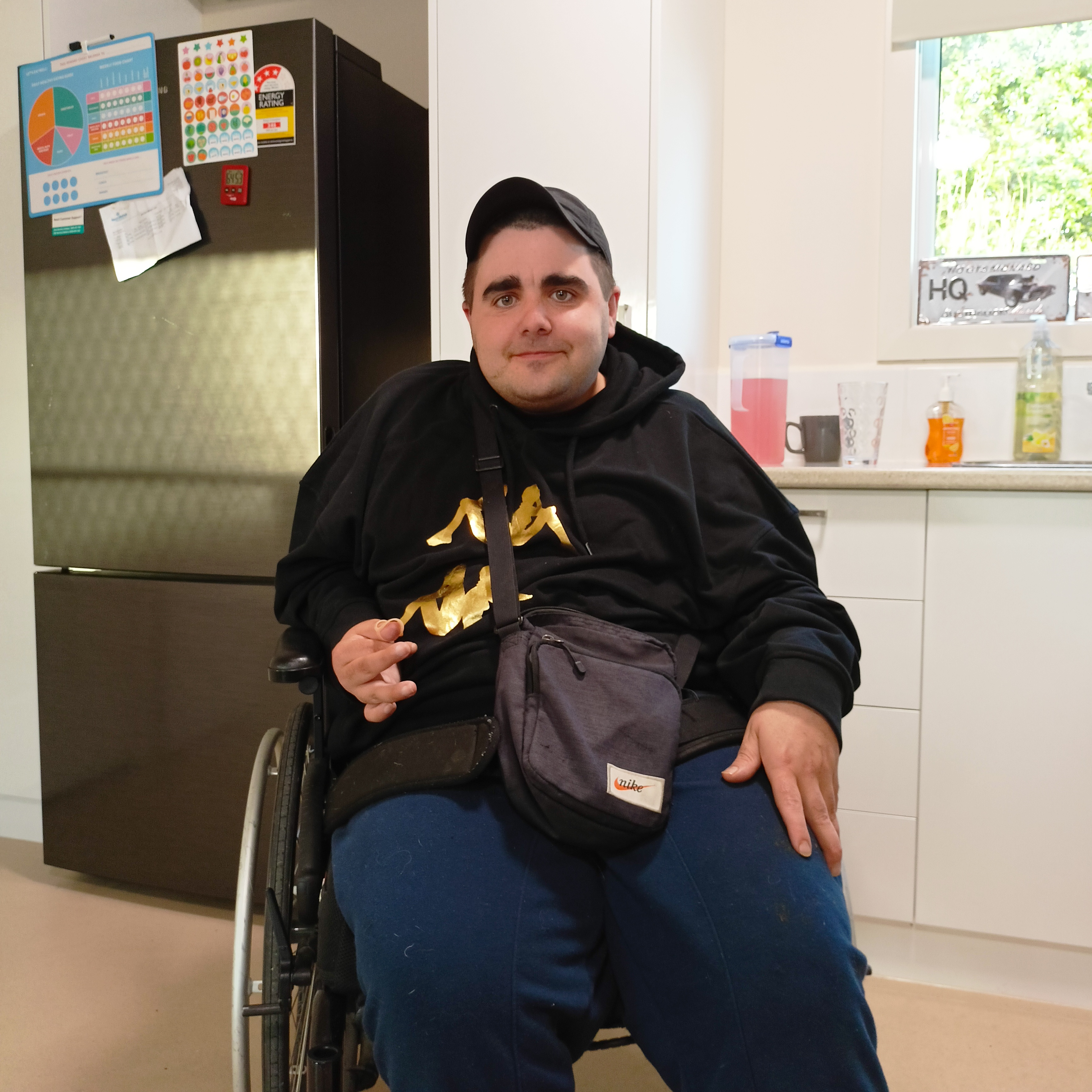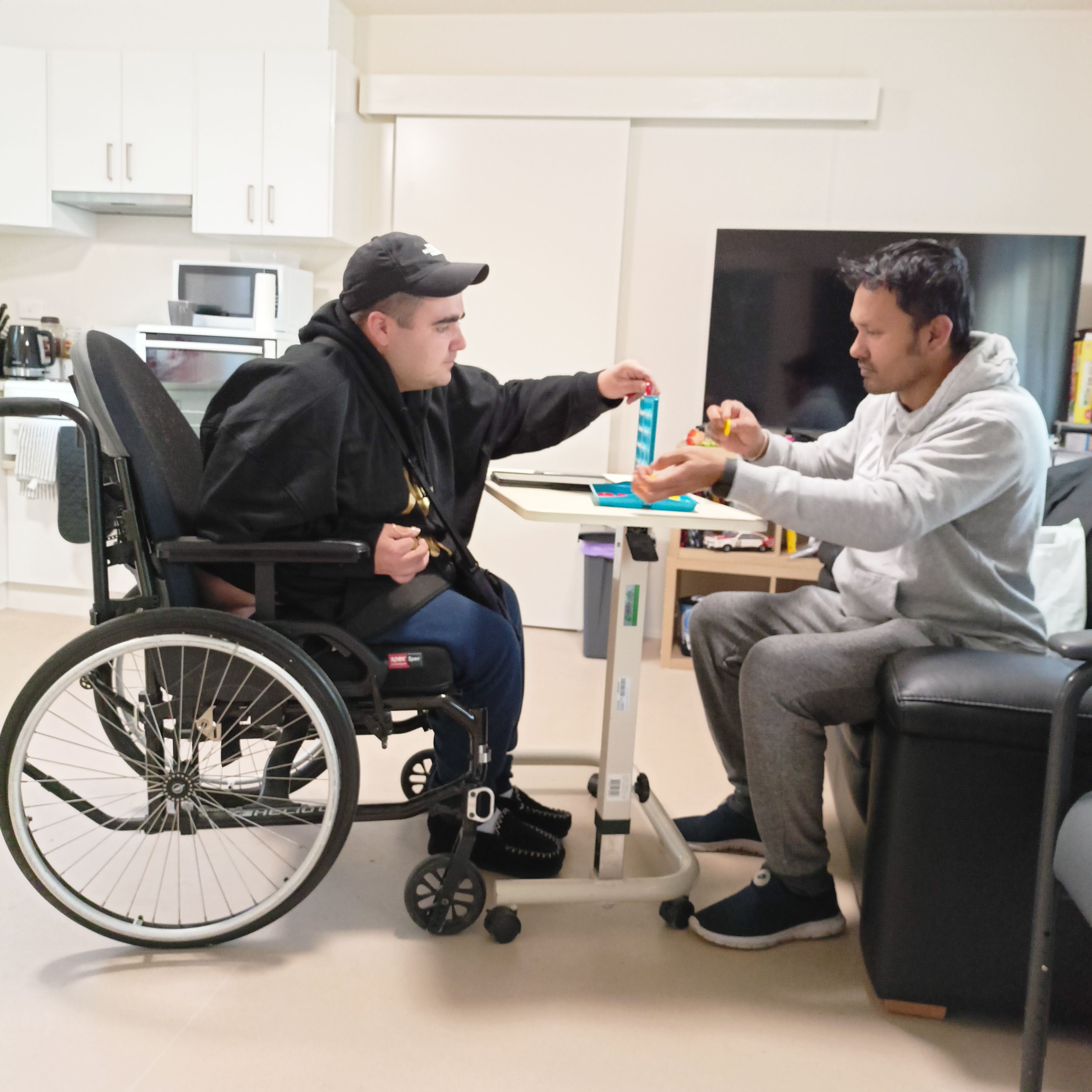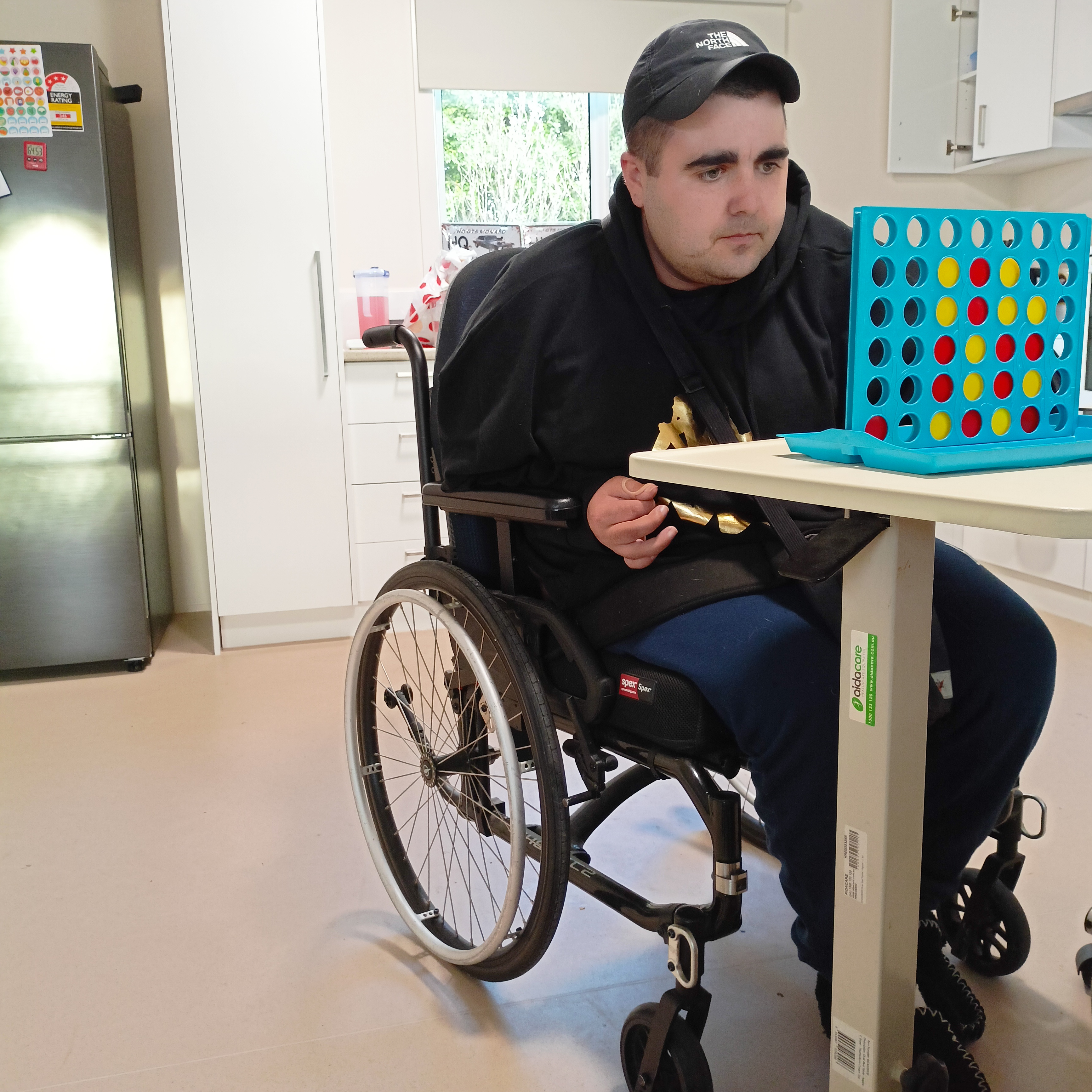Fur baby, football, and Facebook: How Michael’s getting back to the things he loves
In November 2018, a young man’s life changed forever. “I was doing a wheelie on my KTM-450 motorbike and came off,” explains 28-year-old Michael. “I don’t remember much after that.” He was taken to hospital by helicopter, with serious injuries that left him unable to walk or care for himself. Michael now lives in a custom-built unit next to his mother’s home and receives support from Healthscope Independence Services. He is learning to walk again and plans to see Collingwood play next season.
Michael’s difficulties are the result of an acquired brain injury (ABI). An ABI is any brain injury that occurs after birth. Causes[i] include stroke, lack of oxygen, infection, brain diseases, alcohol or drug use, and physical injury – as happened with Michael. Over 700,000 Australians are living with a brain injury, three-quarters of which are men[ii]. An ABI can lead to long-term problems that affect an individual’s independence, personality and relationships[iii].
From hospital to home after two years
After the accident, Michael spent almost two years in hospital and rehabilitation, including five months in a coma. He came home in October 2020. Michael’s life looks very different today to what it did before the accident. “I’d worked as a mechanic, concreter, and tyre fitter” he says. “Now I don’t work and I’m in a wheelchair.” Michael uses a standard wheelchair inside, and a motorised one when he’s out in the community.
Michael receives in-home support from 7am to midnight every day. One of his support workers Apoorva explains: “On one side of his body, Michael’s leg and hand don't really move, so he needs support for dressing, showering and toileting.” Michael says his support workers also “make me food and drinks.”
Dog days
And he is making progress. According to Michael, the most important goal he has achieved so far is being able to spend time with his dog. “She’s a purebred American bulldog,” he says. “She comes and stays with me in the unit. Her name is Summer.”
One of his current goals is to get more mobile. “I'd like to walk my dog and play with her. Everything's about my dog.” Michael practices walking most days with supervision from his support workers.
Arati, a support worker who has worked with Michael for 6 months, explains: “With his new unit he is able to walk around and I can see how much he has improved.”
He also attends therapy each week, going by himself in a taxi. “I go to the gym and to the physio on Monday, Wednesday and Friday.”
Arati attends some therapy sessions with Michael. “I learn the exercises from the hand therapist and help him do them at home. He’s now increased his dumbbell exercises from ½ kg to 1.5kg.
“I also learn the exercises he needs to do from his physio and encourage him to walk, sit on a chair, and do his leg exercises. I can see he’s improving.”
Daily training
Michael enjoys going to the local shopping centre, which he does with a support worker. “He goes there every day unless it rains,” Apoorva says. “But it’s one station away so he has to take the train. He sometimes even goes there twice a day – once in the morning and once in the afternoon.”
Michael also enjoys visiting the local park. “He sometimes prefers to go by himself, or sometimes a support worker will accompany him,” Apoorva explains.
Friends, Facebook and food labels
When he’s not attending therapy or getting out and about, Michael likes spending time on his iPad. “I like making new friends on Facebook,” he says.
In terms of goals, he is also working towards achieving a healthy weight. Apoorva says his support workers provide informal assistance with this. “We encourage him not to eat too many sugary foods if possible,” he explains. “We also encourage him to read the nutrition labels on packaging to see how many kilojoules are in his food or drinks.”
Apoorva says his work with Michael is very rewarding. “I think that I'm contributing to Michael achieving his goals. It’s important for him that there are people around him who are supporting and encouraging him to reach his goals.”
The future is football
Michael also follows football and is a keen Collingwood supporter. “The new coach is good,” he said. One of his goals is getting to see his favourite team play. “I've seen Richmond and Essendon, but I’ve never seen Collingwood live. Next year, that’s what I’m going to do.”
[i] https://www.betterhealth.vic.gov.au/health/conditionsandtreatments/acquired-brain-injury
[ii] https://www.health.gov.au/ministers/the-hon-greg-hunt-mp/media/4-million-for-traumatic-brain-injury-research
[iii] https://www.health.gov.au/initiatives-and-programs/traumatic-brain-injury-mission




